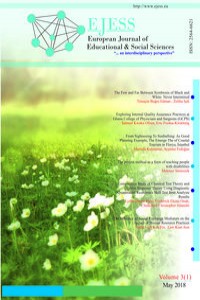Öz
This article presents a comparative study of two
eminent philosophers and three different works on the axis of the colonizer and
the colonized.[1]The
article, on the one hand, reflects the mind of the colonizer and the colonized,
on the other hand it will reveal the relations of this echo in selected works
to confirm that both the east and the west are nourishing their beneficiary
consuming machine on their victims in the neo-liberal system. Albert Memmi’s The Colonizer and the Colonized involves the black man's war of
existence against the exploiting white man while it purports to present how
colonialism encapsulates the colonized. It will also play a major role in the
synthesis of the selected works that include different times and places. John
Maxwell Coetzee’s Disgrace is a novel
about the dilemma of an elderly white academician in a scandalous indignity,
and Mohsin Hamid’s The Reluctant Fundamentalist
is about a young Pakistani lad’s rushing towards a career in the United States
during the aftermath of 9/11. What makes these two men so akin is not their
skin colours but something else. It's like a piece of whole that is far from
each other but actually so close. On the other hand, in his book Black Skin White Masks, Frantz Fanon
investigates different dimensions of irritating existence of the worthless one:
the colonized. As a psychiatrist Fanon
explains how the colonizer, after all human beings come to be so intolerable
and relentless to the colonized ones and why the colonized people always come
to a dead end when it comes to get rid of the sense of otherness no matter what
they do to get equal rights with the colonizer. The tension between the colonizer
and the colonized, which can be depicted as a social schizophrenia has been
exemplified in the play of Amiri Baraka, Dutchman.
In the light of the brilliant ideas presented in Black Skin White Masks, the play of Amiri Baraka Dutchman will be analysed in terms of
the concepts of the colonizer, the colonized, psychology of racism and
dehumanization through the fictional characters Clay, the man of colour and Lula,
the white woman. Ultimately, this article will try to confirm that the
intersection points of both the colonizer and the colonized are not their skin
colours but their minds. If there is any freedom to be reached, this should
start from liberating the minds, thus by decolonizing the minds, not by
distinguishing the skin colours.
Anahtar Kelimeler
Segregation Duality Intuitivism Identity Crisis Neoliberalism
Kaynakça
- Basaran, T.,Bigo, D., Guittet, E. P., &Walker, R. (Eds.). (2017). International Political Sociology Transversal lines. New York: Routledge.
- Coetzee, J. M. (2014). Disgrace. London: Penguin Books.
- Fanon, F. (2004). Toward The African Revolution: Political Essays. New York: Grove.
- Hamid, M., Rau, R. F., & Stritzelberger, I. (2013). The Reluctant Fundamentalist. Braunschweig: Diesterweg.
- Haque, M. S. (1999). The Fate of Sustainable Development Under Neo-Liberal Regimes in Developing Countries. International Political Science Review,20(2), 197-218. doi:10.1177/0192512199202005
- Heath, M. (2008). Aristotle on Natural Slavery. Phronesis,53(3), 243-270. doi:10.1163/156852808x307070
- Kelly, K. (2003). Out of Control The New Biology of Machines, Social Systems and The Economic World. New York: Basic Books.
- Memmi, A. (2006). Decolonization and the decolonized. Minneapolis: Univ. of Minnesota Press.
- Saad-Filho, A., & Johnston, D. (2005). Neoliberalism: a critical reader. London: Pluto.
Öz
Kaynakça
- Basaran, T.,Bigo, D., Guittet, E. P., &Walker, R. (Eds.). (2017). International Political Sociology Transversal lines. New York: Routledge.
- Coetzee, J. M. (2014). Disgrace. London: Penguin Books.
- Fanon, F. (2004). Toward The African Revolution: Political Essays. New York: Grove.
- Hamid, M., Rau, R. F., & Stritzelberger, I. (2013). The Reluctant Fundamentalist. Braunschweig: Diesterweg.
- Haque, M. S. (1999). The Fate of Sustainable Development Under Neo-Liberal Regimes in Developing Countries. International Political Science Review,20(2), 197-218. doi:10.1177/0192512199202005
- Heath, M. (2008). Aristotle on Natural Slavery. Phronesis,53(3), 243-270. doi:10.1163/156852808x307070
- Kelly, K. (2003). Out of Control The New Biology of Machines, Social Systems and The Economic World. New York: Basic Books.
- Memmi, A. (2006). Decolonization and the decolonized. Minneapolis: Univ. of Minnesota Press.
- Saad-Filho, A., & Johnston, D. (2005). Neoliberalism: a critical reader. London: Pluto.
Ayrıntılar
| Birincil Dil | İngilizce |
|---|---|
| Bölüm | Makaleler |
| Yazarlar | |
| Yayımlanma Tarihi | 26 Mayıs 2018 |
| Yayımlandığı Sayı | Yıl 2018 Cilt: 3 Sayı: 1 |


